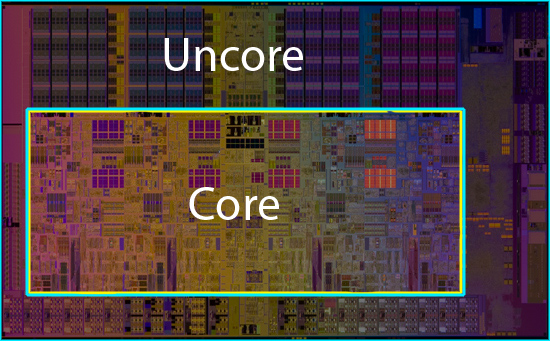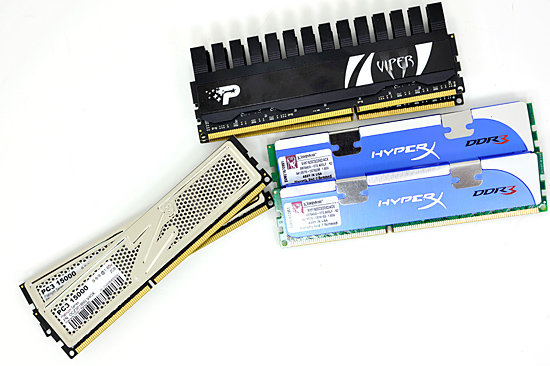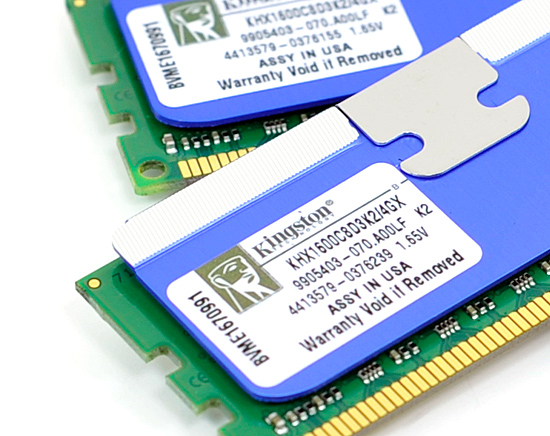Intel's Core i7 870 & i5 750, Lynnfield: Harder, Better, Faster Stronger
by Anand Lal Shimpi on September 8, 2009 12:00 AM EST- Posted in
- CPUs
Lynnfield's Un-Core: Faster Than Most Bloomfields
A few years ago I had a bet going with AMD's Ian McNaughton. We were at an AMD event where the Phenom architecture was first being introduced and he insisted that the L3 cache was part of the memory controller. This didn't make any sense to me so I disagreed. Minutes later a presentation slide went up on a projector talking about how the L3 cache and memory controller were on the same voltage plane; that's what he meant. Ian laughed a lot and to this day he holds it over my head.
The moral of the story is in Phenom and later in Nehalem, the processor is divided into two parts. Intel named them the core and the un-core. The "core" of these multi-core processors is made up of each individual processor core and its associated private caches (L1/L2). The "uncore" refers to everything else: PCIe controller, memory controller, DMI/QPI and the L3 cache.

The uncore isn't as critical for performance but is made up of a ton of transistors; roughly 400 million in the case of Lynnfield/Bloomfield (more if you count the PCIe controller). In order to save power, Intel uses slower transistors that have lower leakage for the un-core. As a result, the un-core can't clock up as high as the core and runs at a lower multiplier.
Take the Bloomfield Core i7 975 for example. The core runs at 25x BCLK (25 x 133MHz = 3.33GHz), but the un-core runs at 20x BCLK (20 x 133MHz = 2.66GHz). The rest of the chips, including Lynnfield, have slower un-cores:
| CPU | Socket | Core Clock | Un-Core Clock |
| Intel Core i7 975 Extreme | LGA-1366 | 3.33GHz | 2.66GHz |
| Intel Core i7 965 Extreme | LGA-1366 | 3.20GHz | 2.66GHz |
| Intel Core i7 950 | LGA-1366 | 3.06GHz | 2.13GHz |
| Intel Core i7 940 | LGA-1366 | 2.93GHz | 2.13GHz |
| Intel Core i7 920 | LGA-1366 | 2.66GHz | 2.13GHz |
| Intel Core i7 870 | LGA-1156 | 2.93GHz | 2.40GHz |
| Intel Core i7 860 | LGA-1156 | 2.80GHz | 2.40GHz |
| Intel Core i5 750 | LGA-1156 | 2.66GHz | 2.13GHz |
Here's another area where Lynnfield is better than the lower end Bloomfields: its uncore runs at 2.40GHz instead of 2.13GHz. The exception being the Core i5 750, its uncore is stuck at 2.13GHz as well. Once again, only the "Extreme" Bloomfields have a faster uncore.
Lynnfield's Memory Controller: Also Faster than Bloomfield
Intel only officially supports two memory speeds on Bloomfield: DDR3-800 and DDR3-1066. Obviously we're able to run it much faster than that, but this is what's officially validated and supported on the processors.
Lynnfield is a year newer and thus gets a tweaked memory controller. The result? Official DDR3-1333 support.

Three Lynnfield memory kits (left to right): OCZ, Patriot and Kingston
The same sort of rules apply to Lynnfield memory kits that we saw with Bloomfield. You don't want to go above 1.65V and thus all the kits we've seen run at 1.5V for the stock JEDEC speeds or 1.65V for the overclocked modules.

Like Bloomfield, 1.65V is the max we'll see on Lynnfield










343 Comments
View All Comments
nikrusty - Wednesday, November 18, 2009 - link
With this article Anandtech is Harder, Better, Faster Stronger.Seriously AWESOME ARTICLE! It cleared many of my doubts FLAT OUT! Now I know i5 is the way to go especially becoz I dont care about overclocking and just want good gaming performance...nothing screamingly extreme. Budget + Performance always keeps you level headed.
shiro - Wednesday, October 21, 2009 - link
what is that monster hoop of death heatsink that's on page 3? lolEeqmcsq - Saturday, September 19, 2009 - link
I asked a similar question in one of the other articles, so pardon me if this sounds repetitive.According to the Turbo charts, the slowest Turbo speed is higher than the stock speed. Why is that? For example, why not just make the 750 a stock GHz of 2.8 GHz instead of 2.66GHz?
Eeqmcsq - Saturday, September 19, 2009 - link
Argh, please ignore. Replied using the wrong Firefox tab.The0ne - Tuesday, September 15, 2009 - link
Clear up what you're trying to show on the graphs please. You're getting more FPS at max setting than at min settings? Label the graphs like you did with the others please. With the others I can just look and understand what you're doing. With these, I'm scratching my head.The0ne - Tuesday, September 15, 2009 - link
Ah, turbo mode represented in FPS >.>'kkara4 - Monday, September 14, 2009 - link
over at bittech.net, they are saying that it is more worth it to go for the i7-920, if we are considering anything above the i5. this is a conflicting story, since anand is recommending the lynnfields. anand or anybody else for that matter could you please see their articles and tell me what they have done wrong? (or perhaps you guys failed to see something). Your article explains things in great technical detail which i can understand since i have studied microprocessors, hence i am more inclined to go for lynnfield. anyway if someone could cross check that would be goodmapesdhs - Tuesday, September 15, 2009 - link
If I've understood Anand's analysis correctly, the conclusion is that,
for application mixes which involve a lot of single and/or dual-threaded
codes, and assuming one is not interested in high-end SLI/CF setups
or hard oc'ing all 4 cores all the time for tasks like video encoding
or animation rendering, the 750/860 are better buys because they
will internally push 1-core and 2-core clocks to a higher rate than
occurs with the 920 via the Turbo function, giving better results
than the 920, and of course the 750/860 are cheaper solutions
(although the 860 price is similar to the 920, the mbd costs less
than an X58, from what people say).
So it depends on what you want to use your system for. No interest
in CF/SLI? Running games that don't hammer 4 cores? An i5 750 or
i7 860 makes more sense. Using apps that don't use more than 2 cores?
Again the 750/860 is more logical, especially from a cost viewpoint.
This ties in with the other advantage of the X58 platform, ie. the
upgrade path to 6-core and 8-core CPUs. If this is something that
holds no value to you, then P55 makes more sense.
As always, it depends on what you want to use the system for. The
attraction of the 860 from a more general point of view is that it
also offers good quad-core performance when one does use all 4 cores
without sacrificing the traditional higher-clocks possible with
single or dual core setups when one is only using 1 or 2 cores. It's
the best of both worlds, at least for out-of-the-box functionality
anyway.
However, if one does intend to use all 4 cores almost all the time
(I do) with a strong overclock, then the 920 is a better choice
because of the voltage issue and (IMO) the 6/8-core upgrade path.
Likewise, high-end multi-GPU setups work better with X58.
Given that general usage of a PC rarely uses more than 2 cores, this
is why the 750 and 860 are such attractive options.
As for the 870, despite its 1/2-core speed advantages, the price is
too high IMO. For that kind of money, a 920 makes more sense, paired
with better cooling if one has such a spare budget, or buy a better
GPU setup which, for gaming, is where the real bottleneck lies.
Anand, please correct me if I'm wrong with the above.
Ian.
PS. As always, real-world pricing issues can make a mess of on-paper
technical conclusions. Also, although many games/apps don't exploit
more than 2 cores now, this is likely to change in the near future as
multi-core coding becomes more pervasive in the industry.
mapesdhs - Monday, September 14, 2009 - link
Anand/Gary,
Re your comments about an X58 advantage being the ability to use
later 6 and 8-core CPUs...
I've been planning to build an i7 920 system for video encoding, so
a max oc on all cores is useful to me; from the article I thus infer
the X58 is a better choice.
However, if I did buy such a setup instead of an i5 or i7 860, what
would the cost tradeoff be do you think when the 6-core CPUs arrive
with respect to upgrading? By that I mean, for total processing
throughput, do you reckon a 6-core upgrade would be significantly
cheaper than simply buying a second i7 920 setup? (gfx not an issue)
If not, then the ability to use 6/8-core CPUs later in this context
is somewhat lessened, something that would apply to animation
rendering aswell (ie. extra complete systems perhaps more cost
effective in increased overall throughput compared to upgrading to
more cores). Any ideas? Also, unless the applications used can
exploit more than 4 cores, the later 6-core CPUs won't help. I have
about 1500 hours of material to convert to DivX. Each file is about
40 to 45 minutes (documentary), so converting multiple files on
multiple systems at the same time is very doable.
Given the above, I'm looking forward to more details on how a max
oc'd i860/i870 compares to a max oc'd 920.
At present I'm just using a 6000+ setup to work out the appropriate
format/conversion paths.
Ian.
PS. May I suggest you don't bother replying to those moaning in such
an obviously ludicrous manner about the Turbo mode being active? I
have the distinct impression their posts are designed purely to
irritate. Please don't encourage them. Anyone with any sense will
read the article and understand the salient points you've highlighted
about Turbo mode being an integral function of the chip.
Milleman - Sunday, September 13, 2009 - link
I would say that i5 750 and Pehnom II X4 965 is fully comparable. AMD just have to adjust the pricetag and the price/performance will be on par. Looking at the Gaming rig performance, both i5 750 and Pehnom II X4 965 are well enough for gaming pleasure. I wouldn't shell out my bucks for the more expensive Intel top models. It's such a waste of money, unless you are working with huge video and image editing processes.